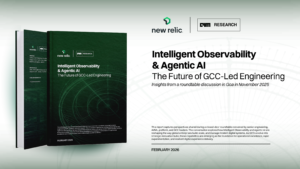In a moment of speculative musing, Anshu Sharma, Co-founder & CEO of Skyflow, took to LinkedIn to provoke a thought experiment—one that shook the data community and drew out some of the industry’s sharpest minds. He asked, “What if Meta decides to get in the game by acquiring Databricks or Snowflake?” With just that one question, Sharma lit the spark for an interesting discussion: could Meta, a company primarily focused on social media, virtual reality, and artificial intelligence, ever enter the enterprise data space?
This speculation is intriguing because of its scale—the ramifications of such a move would be huge, both for the companies involved and for the entire tech ecosystem. Let’s break down this scenario: what would happen if Meta really did acquire a major player like Databricks or Snowflake?
Meta is a company with significant resources, deep AI expertise, and an appetite for transformative technology. However, for a company historically rooted in consumer products—social media, the metaverse, and advertisement—the acquisition of an enterprise software company like Databricks or Snowflake might seem far-fetched. Meta’s current strategy centers around generative AI, with the Llama models leading their efforts. As Ali Ghodsi, CEO & Co-Founder at Databricks, pointed out in a recent post, “Llama 3.1 has seen impressive growth, doubling its usage between May and July 2024.” Meta’s Llama is a direct investment in AI capabilities, but would acquiring a big data company further boost their leverage?
The first argument in favor of Meta acquiring an enterprise data company like Databricks or Snowflake is access to a vast market beyond AI-focused models. Data management and analytics are among the hottest areas in tech, with businesses all around the world clamoring for efficient tools to wrangle their vast data reserves. With Databricks, known for its data intelligence capabilities, Meta could potentially add a strong data analytics backbone to its AI strategy. In other words, combining Llama’s AI power with the data efficiency of Databricks could create a supercharged platform for business intelligence and AI applications.
Sharma’s comments are accompanied by a sly acknowledgement: “Don’t hate me but what if Meta decides to get in the game by acquiring Databricks or Snowflake. All the calculations and all the game theory goes out the window.” Even though Sharma called it “not a serious possibility,” the fact that it got so much attention is telling.
The responses to Anshu Sharma’s question ranged from skepticism to enthusiastic endorsement. Brian Greene, Platform Engineer at NeuronSphere.io, remarked, “Meta buying Databricks would be great for Snowflake.” This statement taps into the existing rivalry between Snowflake and Databricks, implying that if Meta absorbed one, the other would gain market advantage by serving businesses uninterested in becoming reliant on Meta’s ecosystem.
Ali Ghodsi’s own perspective leaned towards a different sort of enthusiasm. Instead of commenting on whether Meta should or shouldn’t acquire Databricks, Ghodsi highlighted the achievements of Llama and implied that Databricks was focused on delivering superior data intelligence solutions: “We are empowering developers to create AI models that are tuned on their enterprise data.” In short, the data company isn’t concerned with speculating—they are getting on with the business of being the leading name in enterprise AI.
Manas Ranjan Kar, an AI expert, took a different stance, suggesting that Meta might consider open-sourcing their internal tools to compete with Databricks or Snowflake. He remarked, “That would be fun!” The discussion then drifted to a few critical factors—could Meta really derive significant value from an acquisition in a space that traditionally requires extensive customer hand-holding, solution customization, and enterprise-grade support?
Apurv Garg, Co-founder of Aurva, pointed out that “Enterprise SaaS is not in Meta’s DNA! They might buy and make it opensource though.” His response reflects Meta’s culture—they have historically preferred openness in their tech stack (with Llama being one of their flagship examples of this approach). Garg’s comment hits the nail on the head: buying an enterprise company like Databricks or Snowflake would likely mean either a cultural shift or transforming the newly acquired technology into something more aligned with Meta’s existing playbook.
Ashwin V., Group Product Manager at US Bank, expressed skepticism as well: “Enterprise is way too high touch and cost ineffective for Facebook. They won’t do it especially after their year of efficiency.” His response indicates that Meta’s recent restructuring and focus on financial efficiency may not align with the resource-heavy, enterprise-focus that a company like Databricks requires.
To understand Meta’s possible motivations for a move into enterprise data, one needs to think beyond traditional revenues. Acquiring a company like Databricks or Snowflake could give Meta a foothold in enterprise data—a space where they could significantly grow their AI ambitions by tapping into massive, real-world data pipelines.
With Llama 3.1 doubling its usage in just a couple of months, Meta has demonstrated an interest in positioning itself as a leader in large language models. Expanding into the realm of enterprise data might be the next logical step for them, allowing Meta to better position their AI models for real-world applications that go beyond consumer data and the metaverse. In this context, acquiring Databricks would mean they gain access to a highly respected company focused on data intelligence, machine learning, and cloud analytics—all of which could strengthen Meta’s AI strategy.
On the other hand, buying Snowflake could offer a different advantage. Snowflake’s data platform enables seamless data collaboration, which could align well with Meta’s long-term goal of connecting people, albeit in an enterprise context. Additionally, Snowflake’s focus on analytics, warehousing, and its thriving data marketplace could help Meta to pivot into data monetization and B2B cloud products.
Speculation or Future Reality?
As intriguing as the prospect is, most of the respondents agree that the likelihood of Meta venturing into enterprise software isn’t high. The reasons are manifold—from cultural differences to financial considerations to past experiences like the acquisition of Parse, which Meta eventually shut down. “Meta tried something like this with the acquisition of Parse back in the day, but they shut it down in a year. Jokes apart, I see no value for Meta acquiring either of these companies,” commented Ankur Raina, highlighting a historical precedent.
Even Joe Reis, a seasoned data engineer and architect, weighed in with an unconventional take: “Dark horse – Aldi buys one of them.” Though humorous, this comment speaks to the unpredictability in the tech world, where corporate dynamics and acquisition targets can be completely out of left field.
The Market Impact
If such an acquisition were to happen, it would send ripples across the tech industry. Snowflake and Databricks have been growing fast—Databricks was last valued at $43 billion, and Snowflake at around $52 billion—putting them well within the realm of possibility for a company of Meta’s scale. However, Meta, despite its size, would need to justify the acquisition to shareholders and balance the potential cultural clash with the existing organizations.
Furthermore, acquiring a data company could be seen as a diversification strategy—a way to hedge against Meta’s heavy reliance on advertising revenues and its investments in the metaverse, which have yet to see a strong financial return. Enterprise data and analytics represent a growing market, and Meta could gain an edge by establishing itself within that space.
However, the acquisition also comes with risks. The high-touch nature of enterprise data services, which requires custom solutions and dedicated support teams, doesn’t align with Meta’s core competencies of building scalable consumer software and open-sourcing foundational AI technology. This cultural mismatch might limit the potential synergies and create operational challenges.
A Cloudy Picture
The idea of Meta acquiring Databricks or Snowflake remains a fascinating “what-if” scenario. While Meta’s entry into enterprise data could add a significant feather to their AI cap, the practical challenges of such an acquisition would be daunting. Cultural differences, Meta’s past failures in enterprise plays, and the inherently high-touch nature of enterprise SaaS make such a move a long shot.
As the AI race heats up, companies like Meta will undoubtedly explore all options for maintaining their edge. Whether that will involve high-profile acquisitions or simply advancing their AI capabilities through partnerships and open-source initiatives remains to be seen. For now, the industry will watch closely, ready to adapt should one of tech’s largest players make a surprising move into the data world.
Until then, the speculation remains just that—an entertaining exercise in “what-if,” sparking discussions and forcing us to reconsider how big tech might shape the future of AI and enterprise data.






